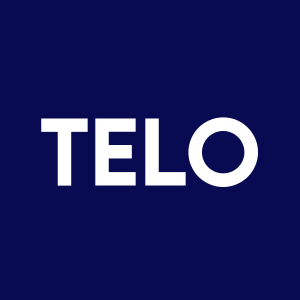Telomir Pharmaceuticals Prevents Cellular Aging in Patient-Derived Cells from Children with Progeria - an Ultra-Rare Genetic Disorder that Causes Rapid Aging
Rhea-AI Summary
Positive
- Strong preclinical results showing cellular aging prevention in actual patient-derived progeria cells
- Multiple positive effects demonstrated including improved cell viability, reduced oxidative stress, and restored mitochondrial function
- Potential first-in-class therapeutic platform addressing both rare aging syndromes and broader age-related diseases
- Company advancing toward clinical development with IND-enabling studies being finalized
Negative
- Still in preclinical stage with no human trial data yet
- Extremely small target market with only 400-500 known cases worldwide
- Will face competition from existing FDA-approved treatment Zokinvy
- Long regulatory pathway ahead with no guaranteed success
News Market Reaction 1 Alert
On the day this news was published, TELO declined 5.38%, reflecting a notable negative market reaction.
Data tracked by StockTitan Argus on the day of publication.
Study used cell lines obtained from the Progeria Research Foundation to evaluate Telomir-1's effects on key drivers of accelerated aging
MIAMI, FLORIDA / ACCESS Newswire / June 18, 2025 / Telomir Pharmaceuticals, Inc. (NASDAQ:TELO), a preclinical-stage biotechnology company focused on reversing biological aging and age-related diseases, today announced compelling new preclinical data showing that its lead candidate, Telomir-1, prevented cellular aging in human progeria cell lines obtained from the Progeria Research Foundation. Progeria, or Hutchinson-Gilford Progeria Syndrome (HGPS), is an ultra-rare pediatric disorder caused by a mutation in the LMNA gene. This mutation results in the production of an abnormal protein called progerin, which drives rapid biological aging in children.
There are an estimated 400-500 known cases worldwide, including fewer than 30 children currently living with the disease in the United States. Symptoms typically begin within the first two years of life and include growth failure, joint stiffness, loss of body fat and hair, and severe cardiovascular disease. Children with progeria have an average life expectancy of just 13 to 15 years, with most dying from heart attacks or strokes at a young age.
The only FDA-approved therapy for progeria, Zokinvy® (lonafarnib), is a farnesyltransferase inhibitor that has been shown to extend lifespan by an average of 4.3 years. However, Zokinvy does not reverse the underlying disease pathology or halt cardiovascular deterioration, which remains the leading cause of death. No approved therapy restores normal cell function or reverses the biological hallmarks of accelerated aging in progeria, highlighting a significant and urgent unmet medical need.
Telomir-1 is designed to regulate intracellular metal ions, reduce oxidative stress, restore mitochondrial function, extend telomere length, reverse muscle loss, and reset age-associated DNA methylation patterns - all of which are critical biological pathways implicated in progeria and broader age-related diseases.
In this study, conducted by Smart Assays, Telomir-1 was tested in cells taken directly from a child with HGPS. These cells were obtained from The Progeria Research Foundation (www.progeriaresearch.org). The study evaluated cell viability, reactive oxygen species (ROS), and intracellular calcium signaling - a marker of mitochondrial dysfunction - under both normal and stress-induced conditions.
Key findings include:
Improved cell viability: Telomir-1 increased survival in a dose-dependent manner, both under basal conditions and even under stress conditions induced by copper and iron-two metal ions known to accelerate aging by generating oxidative damage and destabilizing DNA and telomeres.
Reduction of oxidative stress: Progeria cells exhibited abnormally high levels of reactive oxygen species (ROS), a hallmark of cellular aging. Telomir-1 normalized these levels, both under basal conditions and even when ROS was further elevated by toxic metal exposure.
Restoration of mitochondrial function: Iron-induced calcium overload - a signal of mitochondrial damage and a known feature of HGPS - was significantly reduced with Telomir-1, indicating restored mitochondrial regulation and improved cellular energy balance.
These results demonstrate that Telomir-1 directly addresses the core cellular dysfunctions driving disease features in progeria - not only protecting cells from damage but restoring critical biological functions. The fact that these results were observed in actual patient-derived human cells offers strong early validation of Telomir-1's therapeutic potential.
"These results provide the strongest evidence to date that Telomir-1 is not only protective but also restorative at the molecular and cellular level," said Dr. Angel, Chief Scientific Advisor of Telomir. "What's especially promising is that the improvements we observed directly target the mechanisms known to drive disease progression in progeria - oxidative stress, metal toxicity, and mitochondrial instability. This level of functional rescue in actual patient-derived cells is highly encouraging as we move toward clinical translation. These studies come as further validation of the very promising results obtained previously in both nematode and zebrafish models of adult progeria."
"These findings deepen our conviction that Telomir-1 can be a first-in-class therapeutic platform for rare aging syndromes and broader age-related diseases," said Erez Aminov, CEO of Telomir. "By demonstrating the ability to reverse cellular damage in human progeria cells, Telomir-1 represents a potential breakthrough for children who currently have no real options beyond modestly delaying the inevitable. This work also lays the foundation for broader applications in neurodegeneration, metabolic dysfunction, and systemic aging.
The new data also build on previously reported studies in zebrafish and C. elegans nematodes harboring the wrn gene mutation (a model of adult progeria, or Werner syndrome), where Telomir-1 significantly extended lifespan, restored telomere length, reversed muscle degeneration, and normalized molecular age markers.
Telomir is currently finalizing IND-enabling studies for Telomir-1 and plans to engage with the U.S. Food and Drug Administration (FDA) to explore regulatory pathways, including the potential for orphan drug designation. The company is evaluating multiple rare disease indications for initial clinical development.
Cautionary Note Regarding Forward-Looking Statements
This press release, statements of Telomir's management or advisors related thereto, and the statements contained in the news story linked in this release contain "forward-looking statements," which are statements other than historical facts made pursuant to the safe harbor provisions of Section 27A of the Securities Act of 1933, as amended, and Section 21E of the Securities Exchange Act of 1934, as amended. These risks and uncertainties include, but are not limited to, the potential use of the data from our studies, our ability to develop and commercialize Telomir-1 for specific indications, and the safety of Telomir-1.
Any forward-looking statements in this press release are based on Telomir's current expectations, estimates and projections only as of the date of this release. These and other risks concerning Telomir's programs and operations are described in additional detail in its Annual Report on Form 10-K for the fiscal year ended December 31, 2024, which are on file with the SEC and available at www.sec.gov. Telomir explicitly disclaims any obligation to update any forward-looking statements except to the extent required by law.
Contact Information
Helga Moya
info@telomirpharma.com
(786) 396-6723
SOURCE: Telomir Pharmaceuticals, Inc
View the original press release on ACCESS Newswire







